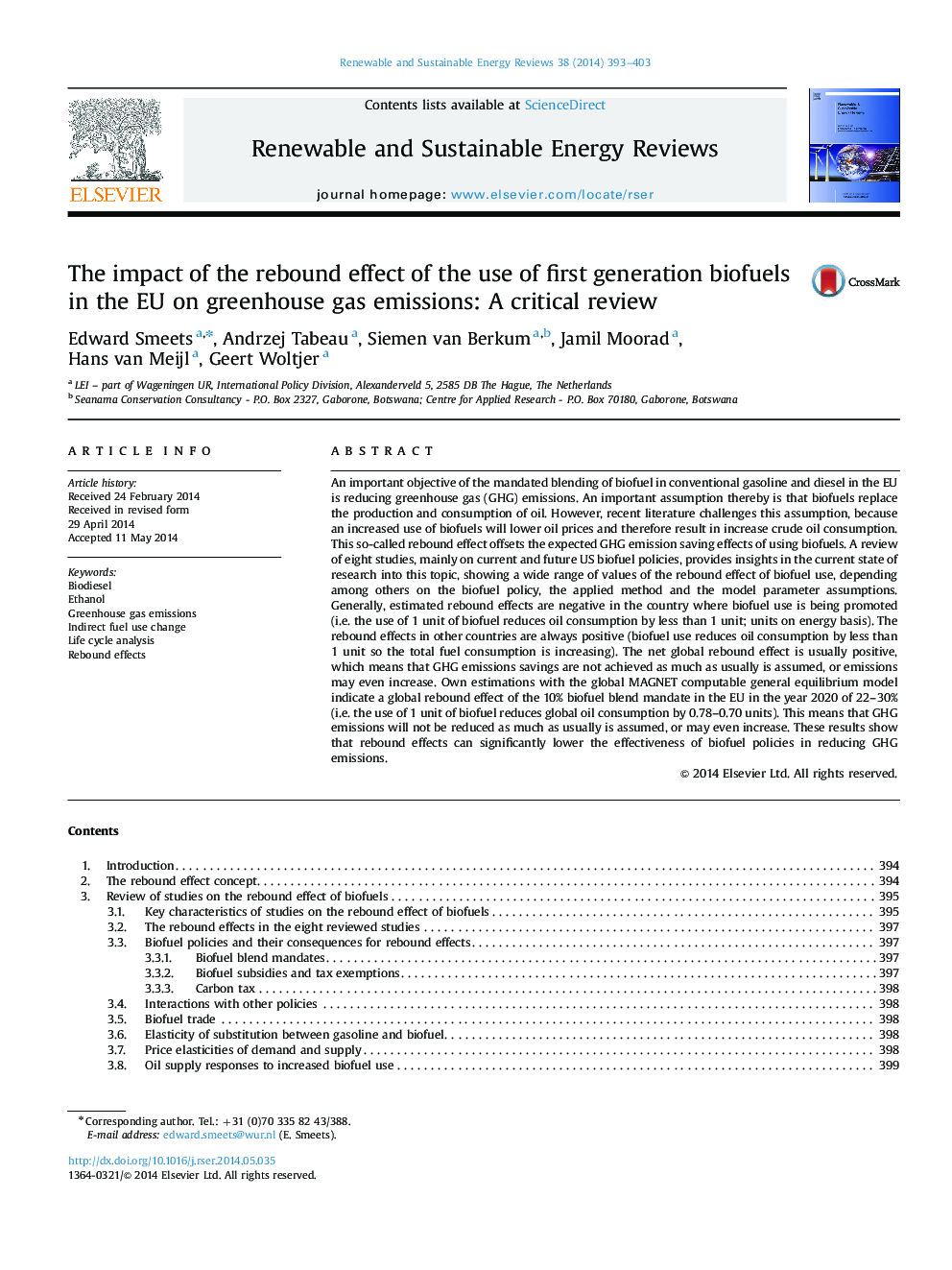| کد مقاله | کد نشریه | سال انتشار | مقاله انگلیسی | نسخه تمام متن |
|---|---|---|---|---|
| 8119628 | 1522347 | 2014 | 11 صفحه PDF | دانلود رایگان |
عنوان انگلیسی مقاله ISI
The impact of the rebound effect of the use of first generation biofuels in the EU on greenhouse gas emissions: A critical review
ترجمه فارسی عنوان
تأثیر بازتوییت استفاده از سوختهای زیستی نسل اول در اتحادیه اروپا بر انتشار گازهای گلخانه ای: بررسی انتقادی
دانلود مقاله + سفارش ترجمه
دانلود مقاله ISI انگلیسی
رایگان برای ایرانیان
کلمات کلیدی
بیودیزل، اتانول، انتشار گازهای گلخانه ای، تغییر استفاده از سوخت غیر مستقیم، تجزیه و تحلیل چرخه زندگی، اثرات بازگشتی،
موضوعات مرتبط
مهندسی و علوم پایه
مهندسی انرژی
انرژی های تجدید پذیر، توسعه پایدار و محیط زیست
چکیده انگلیسی
An important objective of the mandated blending of biofuel in conventional gasoline and diesel in the EU is reducing greenhouse gas (GHG) emissions. An important assumption thereby is that biofuels replace the production and consumption of oil. However, recent literature challenges this assumption, because an increased use of biofuels will lower oil prices and therefore result in increase crude oil consumption. This so-called rebound effect offsets the expected GHG emission saving effects of using biofuels. A review of eight studies, mainly on current and future US biofuel policies, provides insights in the current state of research into this topic, showing a wide range of values of the rebound effect of biofuel use, depending among others on the biofuel policy, the applied method and the model parameter assumptions. Generally, estimated rebound effects are negative in the country where biofuel use is being promoted (i.e. the use of 1 unit of biofuel reduces oil consumption by less than 1 unit; units on energy basis). The rebound effects in other countries are always positive (biofuel use reduces oil consumption by less than 1 unit so the total fuel consumption is increasing). The net global rebound effect is usually positive, which means that GHG emissions savings are not achieved as much as usually is assumed, or emissions may even increase. Own estimations with the global MAGNET computable general equilibrium model indicate a global rebound effect of the 10% biofuel blend mandate in the EU in the year 2020 of 22-30% (i.e. the use of 1 unit of biofuel reduces global oil consumption by 0.78-0.70 units). This means that GHG emissions will not be reduced as much as usually is assumed, or may even increase. These results show that rebound effects can significantly lower the effectiveness of biofuel policies in reducing GHG emissions.
ناشر
Database: Elsevier - ScienceDirect (ساینس دایرکت)
Journal: Renewable and Sustainable Energy Reviews - Volume 38, October 2014, Pages 393-403
Journal: Renewable and Sustainable Energy Reviews - Volume 38, October 2014, Pages 393-403
نویسندگان
Edward Smeets, Andrzej Tabeau, Siemen van Berkum, Jamil Moorad, Hans van Meijl, Geert Woltjer,
